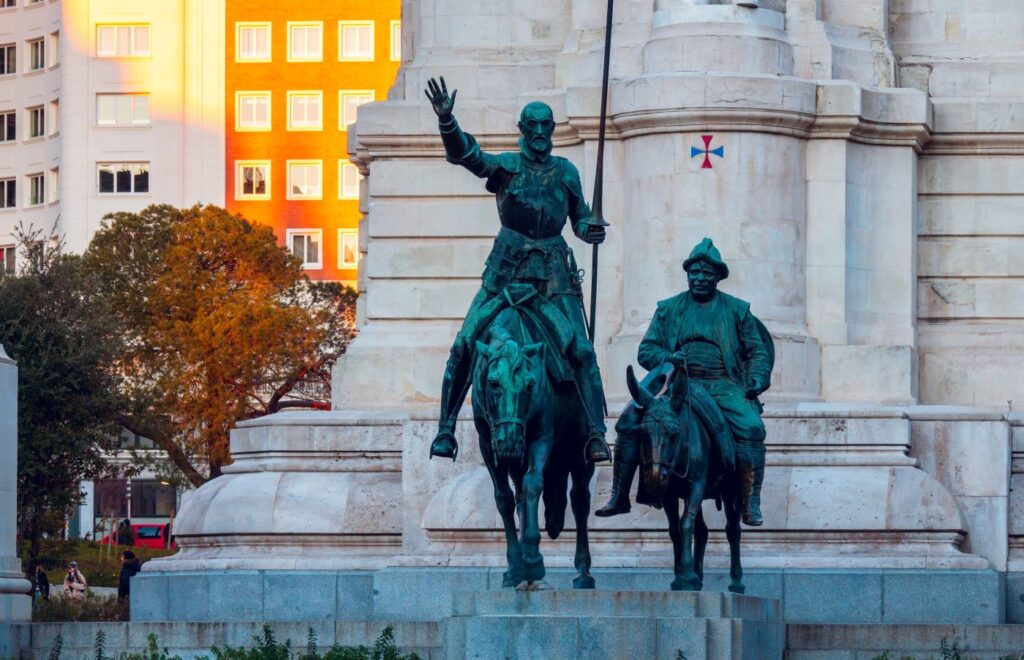Earlier this year, the FBI arrested Jack Teixeira, a member of the Massachusetts Air National Guard, on charges that he leaked classified documents on Discord, a social media platform popular with gamers. According to a Washington Post article on Teixeira, friends described him as “patriotic, a devout Catholic and a libertarian with an interest in guns and doubts about America’s future.” Some members of the Discord group—an invitation-only community of about two dozen mostly men and boys who enjoy a passion for guns, military gear, and God—shared with the Post a video of Teixeira shouting racist and antisemitic slurs before firing a rifle.
Though a significant leak of classified information is of course concerning, also curious is the confluence of character traits and motivations of Mr. Teixeira, a self-professed devout Catholic. Once suspended from his high school for violent remarks, Teixeira was a big fan of first-person shooter video games, according to Washington Post interviews of his social media contacts. “He would talk about wanting to kill ATF agents or when ATF agents would show up to his house, like theoretically preparing your house so that they would die in some strange trap,” one friend told the Post. And media reports indicate he was desperate for attention and respect.
Such emotional insecurity, conspiratorial thinking, and violent tendencies are not unique among young American men, who, measured against many criteria, are suffering an acute crisis. The CDC has noted a massive increase in male suicide among teens and youths. Death rates for boys far outpace those of girls, and the life-expectancy gap between males and females is the largest in a quarter-century. American colleges and universities now enroll roughly six women for every four men, the largest gender gap in the history of higher education. Men ages 25 to 54 have been dropping out of the workforce for decades, a result, researchers argue, of a combination of off-shoring, substance abuse, and heavy video game use.
Convinced (rightly or wrongly) that elite cultural and political institutions are collaborating against them, young men are abandoning work, education, and marriage. They are, in turn, replacing these with fabricated, imaginative worlds of video games, siloed social media communities, pornography, and narcotics. Disenchanted with assuming roles in the real world, young men embrace performative activities, typically of a machismo character.
Start your day with Public Discourse
Sign up and get our daily essays sent straight to your inbox.The scope of this crisis of masculinity is uncharted territory for America and the broader West. Yet many of the exaggerated masculine traits described above have an ancient ancestry and can even be traced back to one of the greatest works of the Western canon: Miguel Cervantes’s seventeenth-century epic Don Quixote. Though popularized as a comical story of a confused provincial rube who tilts at windmills, the Spanish classic quite perceptively portrays many of the same deceits and vices found among young American men and hints at the way out of the delusional, self-destructive behaviors so common among young men.
Though popularized as a comical story of a confused provincial rube who tilts at windmills, the Spanish classic quite perceptively portrays many of the same deceits and vices found among young American men and hints at the way out of the delusional, self-destructive behaviors so common among young men.
The Nonplussed Paladin
We first encounter Don Quixote, or Alonso Quixano, as a “hidalgo,” an aging member of the Spanish nobility residing on his remote country estate. This (presumably lesser) nobleman, Cervantes tells us, has invested so much time in reading books of knight-errantry that he neglects the care of his property, having “grown so strangely besotted with those amusements, that he sold many acres of arable land to purchase books of that kind.” This is more than a hobby. It is an obsessive addiction, as Don Quixote consumes this literature until he loses the use of his reason. “His head was full of nothing but enchantments, quarrels, battles, challenges, wounds, complaints, amours, torments, and an abundance of stuff and impossibilities,” Cervantes writes.
The hidalgo eventually persuades a poor farm laborer named Sancho Panza to accompany him on absurd errands inspired by his fantastical books. He designates an unknowing female slaughterhouse worker to be his lady-love, renaming her “Dulcinea del Toboso,” and with her imaginary devotion and Sancho Panza’s unwitting loyalty, he sets out in search of adventures.
But, as anyone even casually familiar with Don Quixote knows, little goes well. He demands that traders from Toledo acknowledge that Dulcinea is a “beautiful damsel” without equal. When they demur, he attempts to defend her honor with a failed mounted charge that results in his being savagely beaten. His attack on windmills—which he believes to be deadly giants—ends in embarrassing defeat. And when he pounces on jailers transporting a group of hardened criminals to labor in Spanish galleys, the freed villains turn right around and pelt the hapless Don Quixote with stones and subsequently terrorize local villages—making him, in the words of one witness, “as great a rogue as any of them.”
A Generation of Quixotic Youth
That none of these failures deters the intrepid paladin makes for good comedy. But it also reveals similarities to our current generation of alienated and disoriented young men and their blurred perception of reality. Don Quixote’s idolizing a member of the opposite sex, for example, bears a resemblance to a generation of sexless males who fantasize about women via pornography but lack the social skills or courage to befriend and commit to real-life women.
There are other similarities between Cervantes’s character and contemporary men. When others humiliate or violently resist Don Quixote, he decries the “envy” of his rivals. When he is defeated by windmills, he blames it on the work of a necromancer. When he is confronted about his liberating criminals, he refuses responsibility. Confronted by a sympathetic clergyman who tries to reason with him, Don Quixote retorts: “You yourself are the man that raves and is enchanted!” Self-righteous and incapable of receiving criticism, yet desperate for praise, the nobleman evinces an immaturity and lack of self-awareness common among those today suffering from what some call “extended adolescence.” When confronted about their intellectual or physical laziness, or their various failings, today’s youth shift the burden of blame instead of taking responsibility.
Don Quixote, like many disenchanted young men who yearn to return to some supposed golden age of yesteryear, also reminisces about a glorious past when “all then was union, all peace, all love and friendship in the world.” He also dreams of a marvelous future entirely untethered from reality, in which he will be wreathed with praise and awarded trophies for his impressive feats, and Sancho Panza will be elevated to the rank of governor. Today, young men step outside and spy failing communities, crumbling infrastructure, and dimmed professional and personal prospects, so they turn to screens with worlds over which they have more control. Video games, live-action roleplaying, and other fantastical, disembodied or semi-embodied forms of recreation come to mind.
Today, young men step outside and spy failing communities, crumbling infrastructure, and dimmed professional and personal prospects, so they turn to screens with worlds over which they have more control.
Solutions from Cervantes
It is only at the end of Don Quixote’s life that he finally recognizes the errors of his ways. On his deathbed, the aging hidalgo declares: “Now, I perceive those books’ nonsense and impertinence, and am only sorry the discovery happens so late, when I want time to make amends by those studies that should enlighten my soul, and prepare me for futurity.”
Don Quixote penitently calls for a priest to hear his confession and ensures that his remaining property will be bequeathed to deserving family members. He begs forgiveness from Sancho Panza, repenting for drawing the peasant into his world of madness. “Soft and fair gentleman,” the suddenly-reflective Don Quixote muses, “never look for birds of this year in the nests of the last.”
Today’s young men can do better than a deathbed conversion. Thankfully, Cervantes offers an alternative to the madness of the man from La Mancha. Most obvious is abandoning those things that directly harm us. Early in the novel, his friends scrutinize and condemn his knight-errant books. Shortly thereafter his housekeeper burns all his books after he falls asleep. Perhaps our own atomized, lonely, and discouraged youth should contemplate destroying what ails them, whether seemingly innocent diversions like social media or video games, or far more pernicious and dehumanizing scourges like pornography or invitations into suicidal or homicidal ideations.
Of course, eliminating temptations is only half the battle. Young men need direction, purpose, and even adventure, though the kind that is united to virtue and restrained by the wisdom of elders. Cervantes’s own life speaks to that. The Spaniard proudly served at Lepanto, the greatest naval battle in over a millennium. Yet men need not go off to war to find honor and adventure: I was recently amazed by two young men who decided to traverse the United States trying to catch every official state fish. I see parallels in my own life: A few weeks after Hurricane Katrina hit the Gulf Coast in 2005, a few college classmates and I impetuously drove down from Charlottesville, Virginia to help hurricane victims, though we (naively) had little idea where we would stay or what we would eat. These are the kinds of exploits young and unattached but adventurous men in America can pursue. Steady work, participation in religious communities, and self-improving hobbies will also help.
There are also options for those witnessing young men adrift. Throughout the story, those who care for the elder Don Quixote humbly and prayerfully attempt to dissuade him from his contrived mission. A visiting clergyman exhorts him: “Have pity on yourself, good Don Quixote, retrieve your lost judgment, and make use of those abilities Heaven has blessed you with, applying your excellent talent to some other study, which may be safe for your conscience, and more for your honor.” Similarly, we should be drawing our young men out of their siloes and into conversations and labors in the world, as Matthew Crawford argues in his excellent 2009 book Shop Class as Soulcraft.
Don Quixote is a warning to young men flailing about in digital, imaginary worlds of social media posturing, video gaming, and pornography. Like the titular character, they arrogantly esteem themselves as powerful and wise, though they are indeed weak, vulnerable, and irrelevant, the objects of laughter. “Even the very goatherds and shepherds were fully convinced that Don Quixote’s brains were turned topsy-turvy,” writes Cervantes. Yet there is a way out, exemplified by the many characters who quietly hover in the background of Don Quixote, seeking to serve and protect the confused cavalier through acts of humility, thrift, piety, patience, and laborious self-sacrifice. Such qualities may lack the bombast of our distempered digital age. But they are the best tools to resist a quixotic descent into depravity and dissolution.
Image licensed via Pexels.com.














